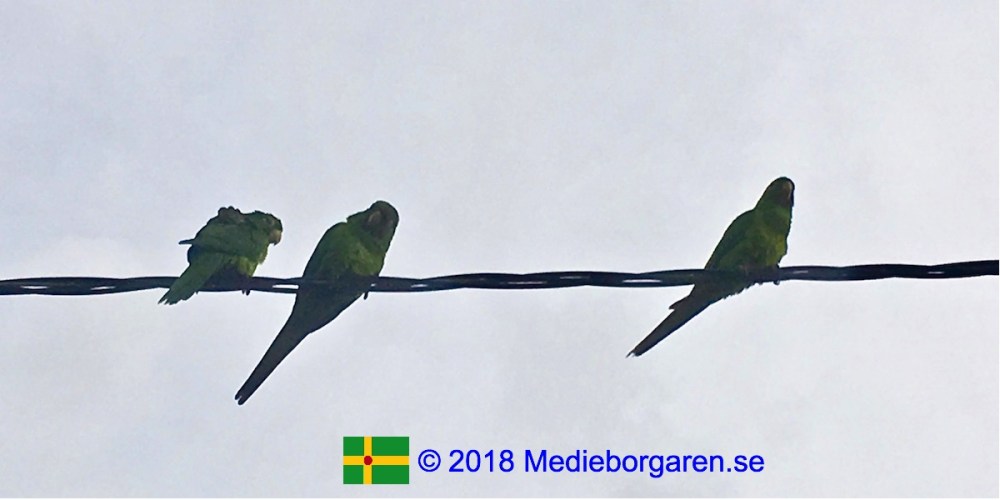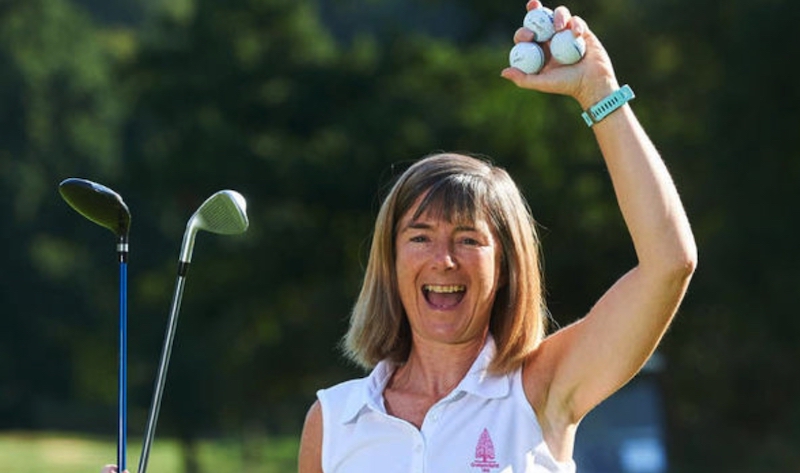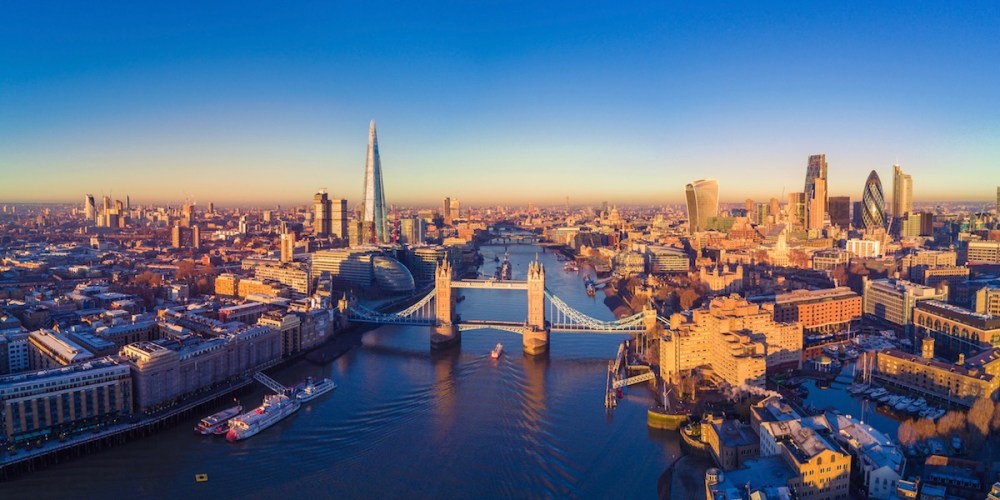Today, I learned that:
Today is the day of the Equinox, which to the inhabitants of the Southern hemisphere means the official start of spring. So my post today is dedicated almost to that and correlated facts.
First, today’s photo shows three maritaca birds sitting on a wire. This species, with the Latin name of Pionus, is rather commonly seen in the wild. They are considered friendly, but have a bad reputation of eating the wires. I took the photo on 2018-09-20 in the city of Osvaldo Cruz, SP, Brazil. See also reference #1 below.

Three maritaca birds sitting on a wire. Photo taken in Osvaldo Cruz, SP, Brazil on 2018-09-20.
But spring is not fun all the time, seeing these birds reminds me of a ground breaking book published in September 1962 by the American biologist Rachel Carson about how human kind is destroying the Earth by using pesticides indiscriminately. At the time, it had a big impact, and among other things led to the creation of the US Environmental Protection Agency (EPA). See also reference #2 below.
And similarly to the situation then, we are now facing the indiscriminate use of plastics. In the following are some recent facts about how it pollutes our oceans, but mind you there are many more examples out there:
Whale dies in Thailand after swallowing 80 plastic bags
On 2018-06-03 was reported that a small pilot whale which died after having consumed 80 plastic bags, weighing a total of 8 kg, thus making it impossible for the whale to eat any nutritional food. A veterinary team tried to keep the whale alive, but in vain. See also reference #3 below.
Plastic pollution in the Mediterranean Sea threatens the health of the ocean
On 2018-06-08, the World Wildlife Fund (WWF) published a report on the high content of plastics in the Mediterranean Sea:
- Record levels of pollution from microplastics in the Mediterranean Sea are now higher than those in the oceanic ‘garbage patches’ and are threatening marine species, fisheries activities and human health in the region.
- Plastic represents 95% of the waste in Mediterranean waters and on its beaches today, with over 130 different marine species known to have ingested plastic.
- Further to the severe consequences of marine litter for wildlife, there are significant economic consequences. The EU fishing fleet currently suffers an estimated annual economic loss of € 61.7 million due to reduced catch and damage to vessels.
- See also references #4 and #5 below.
Research project to discover the distribution of micro plastics in the oceans
On 2018-04-18 was announced that the Swedish international tanker shipping company Concordia Maritime is financing a study with three academic bodies in Sweden, the Swedish Institute for the Marine Environment, The University of Gothenburg and the Swedish Meteorological and Hydrological Institute (SMHI), to collect and process information about micro plastics present in the oceans.
By installing a collection device on a tanker, water samples can be collected while it is under way for subsequent analysis by researchers. The aim is to draw conclusions as to the extent, distribution of microplastics and potential consequences for living organisms. See also reference #6 below.
A 600 m long floating boom to collect plastic in the Pacific Ocean
On 2018-09-08 we could read about the deploying of 600 m long floating boom between the US mainland and Hawaii in an attempt to clean up the world’s largest garbage patch.
The buoyant is intended to act like a coastline, trapping some of the 1.8 trillion pieces of plastic estimated to exist there. It is fitted with solar power lights, cameras, sensors and satellite antennas, the cleanup system will communicate its position at all times, allowing a support vessel to fish out the collected plastic every few months and transport it to dry land where it will be recycled. See also reference #7 below.
In loving memory
Finally, exactly 15 years ago to the day, on 2003-09-23, I was reached by the sad news that my uncle, Sten Olof, had deceased. He guided me as to what and where to study when I was a teenager, e.g. advising me to go ahead to study technology, but not forget about languages. That advice is something that I still follow!
That’s what I learned in school !
Refs.:
1: Pionus
2: Silent Spring
3: Whale dies in Thailand after swallowing 80 plastic bags
4: Plastic pollution in Mediterranean Sea threatens the health of our ocean
5: Out of the plastic trap, saving the Mediterranean from plastic pollution
6: Concordia Maritime collaborates with the Swedish Institute for the Marine Environment to measure microplastics in the oceans
7: Massive boom helps to wrangle Pacific Ocean’s plastic trash
*: What did you learn in school today ?


